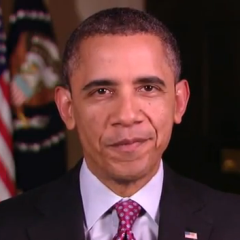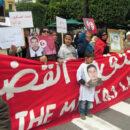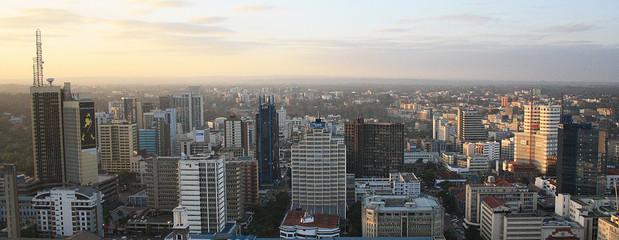Thoughts on ICC-UN Cooperation
On 13 June, the ICC’s trial chamber stayed proceedings in the Lubanga case due to the prosecution’s habitual labeling of a wide range of materials received from third parties as confidential and non-disclosable–a practice which the Court considered in its effect a violation of the accused’s fair trial rights. The decision has been described variously as a “blow for ICC credibility and momentum,” as well as a “demonstration of the independence of the court’s judges.” I believe that its importance also lies in highlighting the extent to which the ICC (and particularly the prosecution) depends on cooperation with the United Nations in volatile environments and some of the major difficulties associated with such cooperation.
The case confirmed publicly that the UN routinely seeks “Article 54(3)(e) protection” for all documents produced under its cooperation agreements with the prosecutor. This is a reference to a provision in the ICC Statute designed to spare certain materials from disclosure requirements under the Statute and the Rules of Procedure and Evidence. While the article refers to materials received “for the purpose of generating new evidence,” however, it seems that the prosecution has been interpreting the afforded protection more widely. The Trial Chamber disapproved of this categorical attempt to seek protection from disclosure for all UN documents, calling it an abuse of the system. One might simply consider the whole episode an error of judgment on the part of the prosecution, which arguably should have entered into UN confidentiality agreements much more selectively (as the defence claimed, the purpose of Article 54(3)(e) was not “to make the prosecution’s task easier” or to obtain information “more quickly”). Then again, with enormous access difficulties on the ground, the prosecution may have had its hand forced somewhat by UN demands, if it wanted to build any case at all, and to put all blame entirely on the prosecution does thus not appear justified.
The UN claims that the need for blanket Article 54(3)(e) protection is dictated by realities on the ground and by its desire not to advertise cooperation publicly. Another justification may well have been operational restrictions. After all, how realistic is it to expect field operations to have the resources and expertise to review all documents prior to handing them over to the prosecution? At the same time, uninvolved censors in New York, Geneva or The Hague might judge information innocuous that would look very differently to the eyes of insiders. Under the 54(3)(e) procedure, the bulk of the legal review work rested with the prosecution, yet ultimate control with the UN. In any case, the Lubanga Trial Chamber has now presented the prosecutor with a “clear and stark” choice: to disclose material in its possession that might be of relevance to the defence (even if this meant breaching its agreements with the UN), or to honor the confidentiality agreements at the risk of seeing the accused released without a trial. The prosecutor’s dilemma foreshadows equally difficult choices for the UN, which has little interest in seeing Thomas Lubanga walk free or in refusing to assist the prosecution in the future. By consenting to disclosure of the protected documents right now or agreeing to forego blanket “Article 54(3)(e) protection” in the future, the UN could resolve the Lubanga situation and safeguard future investigations. But of course it is not as easy as that.
The founding states of the ICC purposely chose to set up the Court as an autonomous institution, and not all UN member states are signatories to the Rome Statute. Legally, the UN is thus required to keep cooperation with the ICC within the confines of an authorized framework–making cooperation about much more than sympathy for a cause. Beyond the usual suspects such as the UN Charter, the various entities’ mandates, and the 2004 ICC-UN Relationship Agreement, this framework includes an unspecified body of rules and regulations, ranging from rules on UN privileges and immunities to administrative, financial, and procurement regulations; confidentiality obligations to existing agreements with other institutions or states; and of course security and operational concerns. Various non-public Memoranda of Understanding between different UN entities and the ICC surely provide further internal guidance on the rights and obligations of the UN vis-a-vis the ICC, while the text of Security Council Resolution 1593 deserves further investigation with regards to any potential UN cooperation obligations in Darfur in particular. Ultimately, UN cooperation is currently based on the voluntary basis envisaged in Article 87(6) of the Statute and remains subject to multiple other obligations.
In the case of the Lubanga documents, one can but speculate on their content. Given the UN Legal Counsel’s continuous refusal to consent to disclosure, one might assume that the UN has been guided by legitimate, weighty, reasons—although, in its submissions to the Trial Chamber, the defence pointed out that one of the previously protected documents recently provided to it was in fact a public document…. Legally speaking, the UN’s priorities have to be its own operations, even if this means the collapse of the Lubanga trial for the ICC. Yet, the beauty of legal opinion is that, to an extent, it is subject to interpretation. A somewhat exaggerated example might illustrate my point: where one legal adviser considers that disclosure of information on–say–OCHA’s work in Al Fasher might jeopardize its work there and thus refuse to consent; another might judge that a climate of impunity in Al Fasher makes it impossible to mobilise and coordinate humanitarian action to alleviate human suffering in an effective way anyway, and that the rights of people in need might thus be better served by supporting an ICC investigation–even if it means closing down activities on the ground. The point is that, without knowing the grounds influencing the UN Legal Counsel’s thinking on the Lubanga documents, it is impossible to judge or analyse that decision.
An entirely different question, however, is whether this situation is politically sustainable for member states. One initially tempting option that could arguably “force” the UN to be more cooperative, or rather, leave little doubt and little room for interpretation as to the legal basis on which the UN should cooperate, could be a more forceful Security Council resolution. Currently, UNSCR 1593 merely “urges … international organizations to cooperate fully” with and provide any necessary assistance to the Court and the Prosecutor (in comparison to a first draft resolution, which proposed the wording “international organizations shall cooperate fully”). Under Article 25 of the UN Charter, a SC resolution is binding on member states–as opposed to the UN proper. However, it has been argued that, as the collective entity of its member states, international organisations must be bound by the same obligations as the shared obligations of their individual members (compare, for example, the ICTY Simic decision on the applicability of the ICTY Statute on SFOR). Of course, such strong cooperation obligations might have far-reaching consequences on the UN’s ability to act on the ground and to gain access to its beneficiaries, and it is in any case not clear if Council members opposed to the ICC would support such a heavy-handed option.
This predicament, which the UN (and arguably its member states) faces, is not just limited to documentary assistance, and not just to purely legal questions. Sooner or later, other “choices” will materialize: Should the UN enter into dealings with indicted ICC criminals for the sake of remaining operational? Should UN employees testify on their work in court? Should UNAMID be mandated with express powers of arrest or should commanders interpret the existing mandate to be including implied powers of arrest? While some of these questions by necessity will have to be solved by the Legal Counsel on a case-by-case basis and by referring to existing legal requirements, many of them would benefit from a clearer line of the member states.
Cornelia Schneider is a lawyer with field experience in Chad and Sudan.






